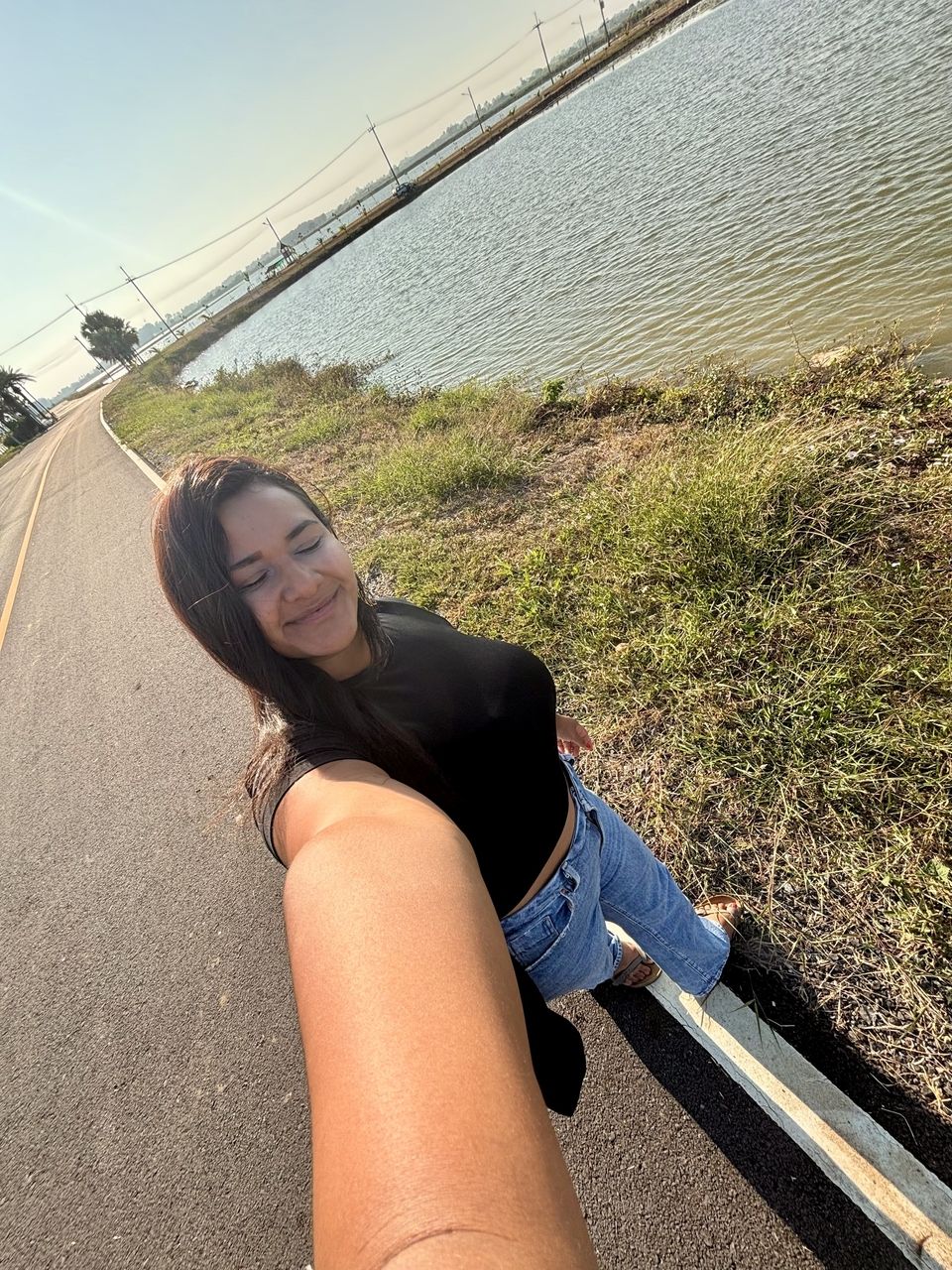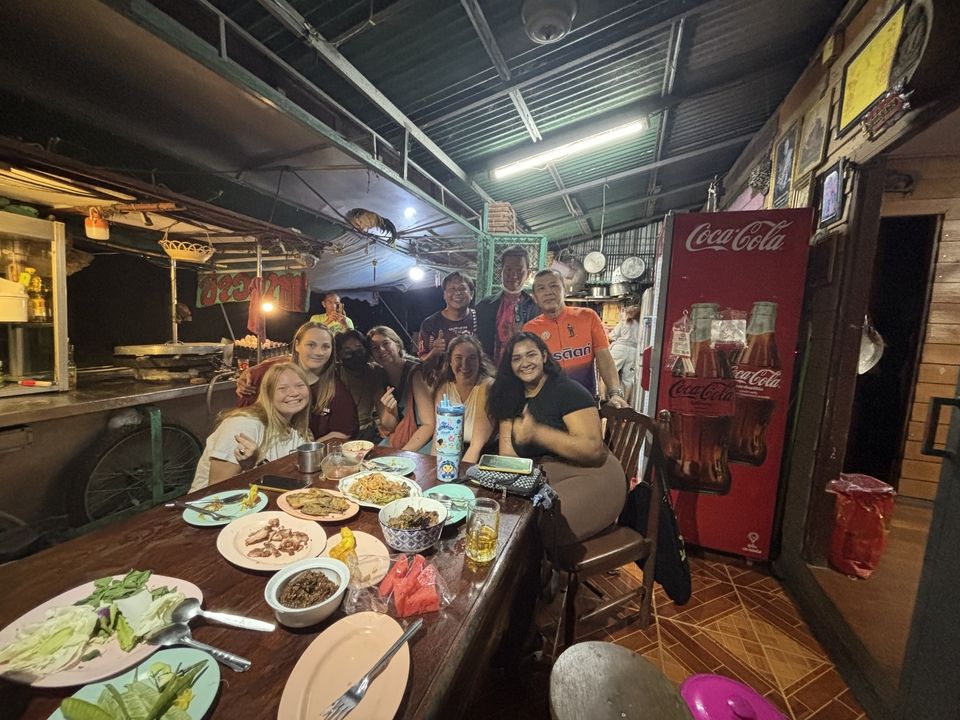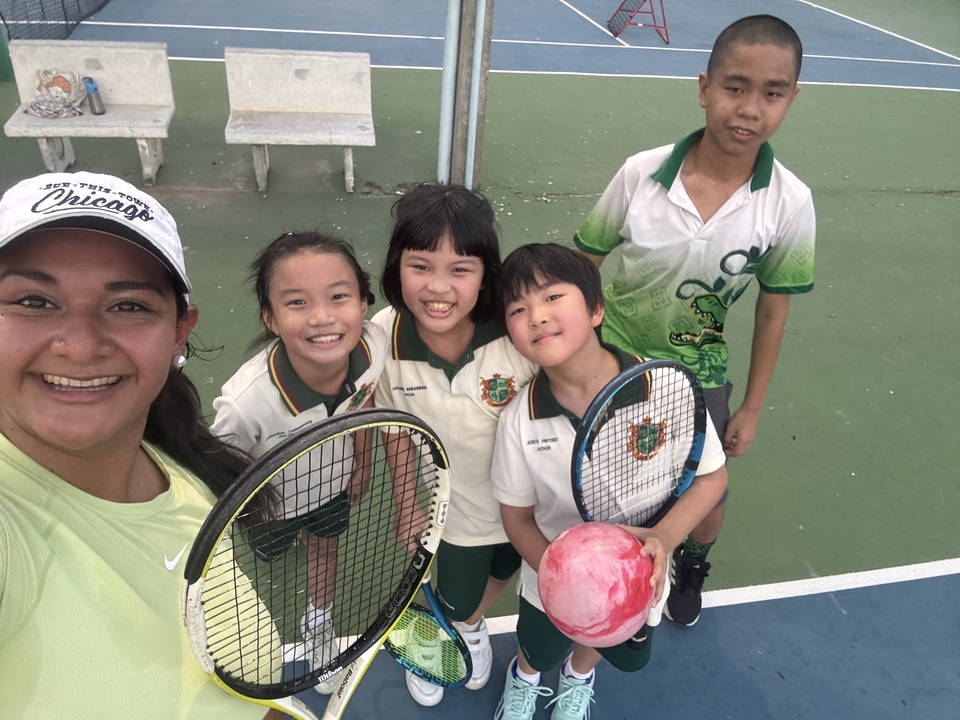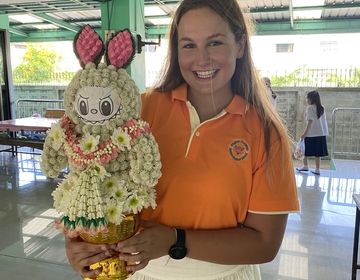Embrace New Beginnings: How to Build a Community Abroad
Initial shock to small town bliss
In October 2024, I moved from Chicago, Illinois to Phichit, Thailand. If you know of these two places, you know there is a massive difference in both cultural and lifestyle. As like any new change in environment, there have been challenges. The way in which I have approached these challenges has had a big impact on my overall experience. The first few weeks here there was an overwhelming sense of frustration accompanied by a feeling of being “trapped”. Back home I have leaned on multiple pockets of community including co-workers, childhood friends, yoga, Latin dance, and gym communities. Each of these communities have fulfilled a different need of mine. There was an initial shock of not having access to these communities at my fingertips the moment I felt overwhelmed or anxious. What I lacked during this time was patience. Like anything, building community takes time. And like any overseas experience, community will show up in many different forms, not necessarily the ways in which it used to. Luckily, in the last six months, I have been able to find and build community here in Phichit. This small town has grown on me. Let me show you how.

Stepping out into the community
One thing about Phichit is that it is still a developing town. Not everything is on Google Maps and what is on Google Maps may not even be there. What time does that restaurant open or close, you ask? Just go. You may never know because Google Maps is not accurate here! As the natural explorer that I am, one day I was taking a walk around the town stadium and I came across this sign. Of course, it was in Thai, so I pulled out my Google Translate and it happened to be a yoga group! I went on a Sunday and the next class was on a Monday. I showed up with a smile and with the four Thai words I knew at the time. The women in the studio welcomed me with open arms and invited me to their new years party that Wednesday! (It took me a while to understand what they were trying to tell me but we figured it out.) I said yes. From there, I have been going on a weekly basis. No one here speaks English perfectly nor do I speak Thai. However, we have been able to connect through our love for yoga and movement. Through Google Translate and body gestures, I have made a connection with these locals who so gladly take care of me and are willing to give me rides to and from the studio. If I hadn’t stumbled upon this sign and had the courage to go to this class alone, I would never have found them! This is just one example of how I’ve built a community here.
Say YES to all and any invitations
I know, it might feel intimidating accepting an invitation from someone who is not from your culture. Yes, you will be confused about a lot of things. Learn to just trust. One thing about Thai people is that they are the most trusting people I have met and quite honestly, I probably trust them more than I trust Americans. (sorry, USA). In the last six months I have learned that Thai people are so inviting and welcoming just because that’s who they are. You do not need to have done something nice to them for them to want to take care of you. By saying yes to invitations from strangers, my students’ parents, and community members, I have experienced a different side of Thailand. Having said yes has bridged the gap from being a total foreigner to getting the feeling of being a Thai local.
Thai Language- don’t let it intimidate you.
“Sawadee-kha!” is how to say hello in Thai if you identify as a woman. The amount of Thai I have learned in the last six months have not been from Duo Lingo or a book or website. To be quite honest, most of the Thai I have learned is from my community, my students, and Thai co-workers. Though I am not anywhere close to fluent, I can get around quite easily knowing numbers (up to 1,000) and phrases such as “How much?” “Do you have a toilet?” “Yes” , “No” “Thank you” and a few food items that I enjoy! The reason I am able to say these confidently is because one day I was not able to say them confidently. I tried to speak to locals and I have been given a face of confusion, but from there I have grown the most. If I had not put myself out there and given it a try, I would not have learned as much Thai as I know now. For me, it’s the smile on people’s faces when I say “Poot Thai neet noi” which is “I speak a little bit of Thai.” Not to say you absolutely need to speak Thai. You can potentially slide by knowing just “hello” and “thank you”. However, learning more than just those words is one of the reasons I have been able to build stronger bonds here. Instead of walking away from a person who I think I can’t communicate with, I attempt to say a few words and Thai people are always so patient with you. They appreciate your efforts and will not make you feel bad if you mispronounce something. Give it a go. Focus on a word, perhaps a word you may say frequently. Ask a Thai person to correct you and then try it out in the real world when you’re by yourself. You may never know the connections you may build along the way.

Be involved with your school community
Having been a teacher in the United States, I can tell you that one of the major differences here in Thailand is that as a teacher, you are like the student’s second or third parent. You are more than just a teacher to them. In the United States, there is a thick line between personal and professional life. In Thailand, though you are still a professional, the line seems to merge a little, especially in a small town like mine. You see your students at the grocery store, at 7-11 and even at local restaurants. Interacting with students and their family is inevitable. In fact, they love it! Parents may want to take you out to dinner or on trips with the family (yes, this is normal and it is ok to say yes). So, I recommend, during school events or even after school, be present, say hello to parents, get to know the students beyond the classroom and you will easily become a member of the community. Though it can be intimidating, you’ll learn very quickly that students’ families are eager to get to know you and your background. Make it a point to be more than just a classroom teacher!

Related Posts
Tapas to Pad Thai: My Experiences Teaching Abroad in Spain and Thailand with CIEE
CIEE Teach Abroad & TEFL Alum Spotlight: Meet Meghan! I have totally become the annoying friend that won’t stop talking about their time abroad. In my defense, it was one... keep reading
Vol. 1: Letters to The World From a Thai Classroom - Thailand Through Thai Eyes: Our Culture & Our Pride
What do you want the world to know about Thailand? Volume 1 offers a moving portrait of Thailand through the voices of eight Thai high school students: Panyawee R., Nattakorn Auykhiphan, Noey, Benyapa Polyiam, Chalisa Rodto, Doungkamon Chimtabtim, Chanidapa Charoen, and Napapron Attapan. Together, they reveal a Thailand deeply rooted in compassion, spirituality, artistic expression, and pride in tradition. From the open-hearted acceptance of LGBTQ+ people to the reverence for karma. These young voices speak of a nation that values harmony, family, humility, and cultural richness. Their stories remind us that to know Thailand, one must look beyond instagram and into the hearts of its people.
Orientation for Teaching in Thailand: A Day-by-Day Breakdown/ What its Really Like
What REALLY Happens at Orientation Week in Thailand: My CIEE Experience From jet lag and jungle curry to temples and teaching prep—orientation week in Bangkok is a wild ride of nerves, excitement, and unforgettable firsts. If you’re about to teach abroad with CIEE or OEG and wondering what those first few days in Thailand actually feel like… this is your sneak peek. I’ll walk you through each day of the June 2025 orientation—what we did, what I wish I knew, and why this week shaped everything that followed. Let’s rewind to the moment I landed in Bangkok, backpack in hand, heart racing. Here’s how it all unfolded.


